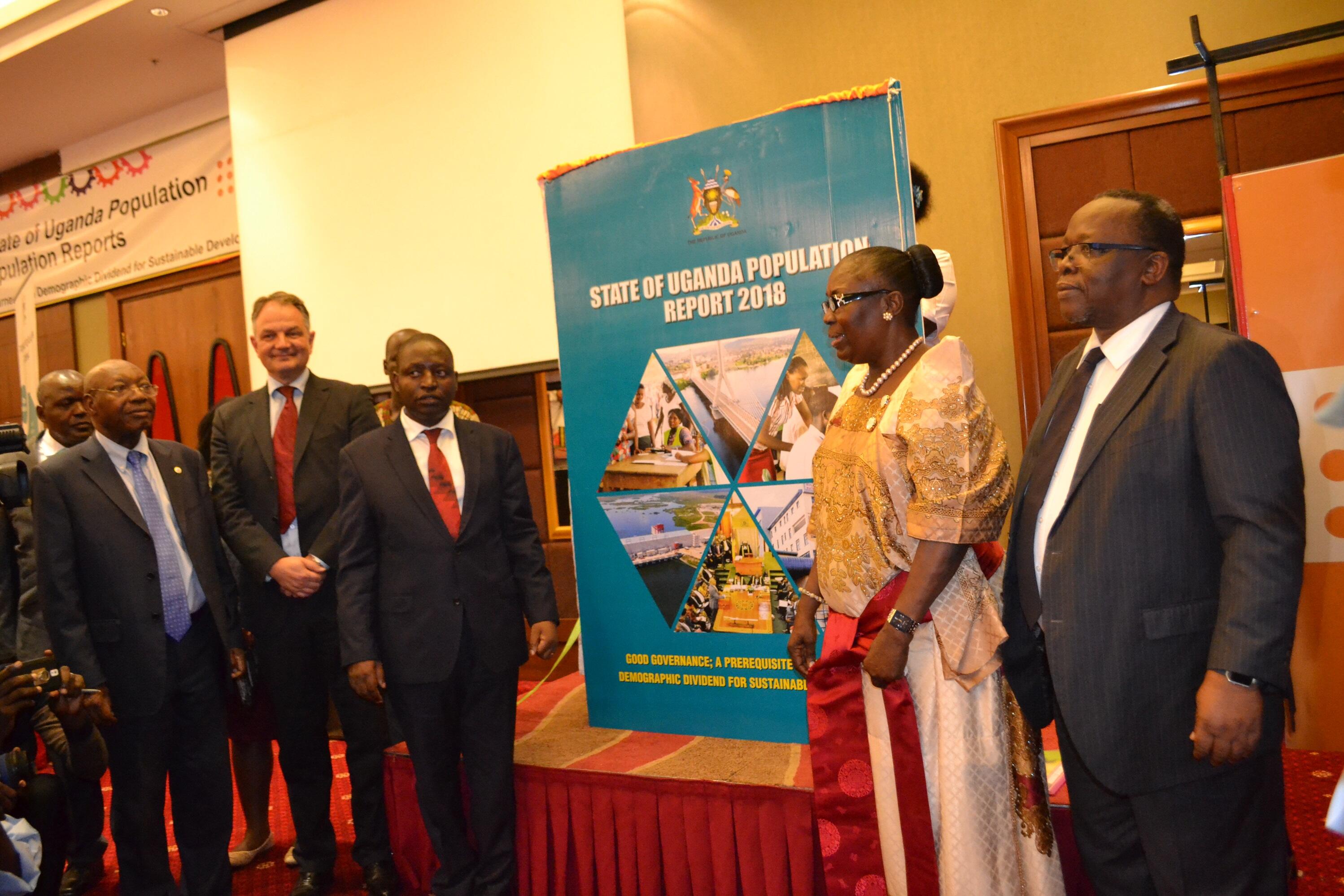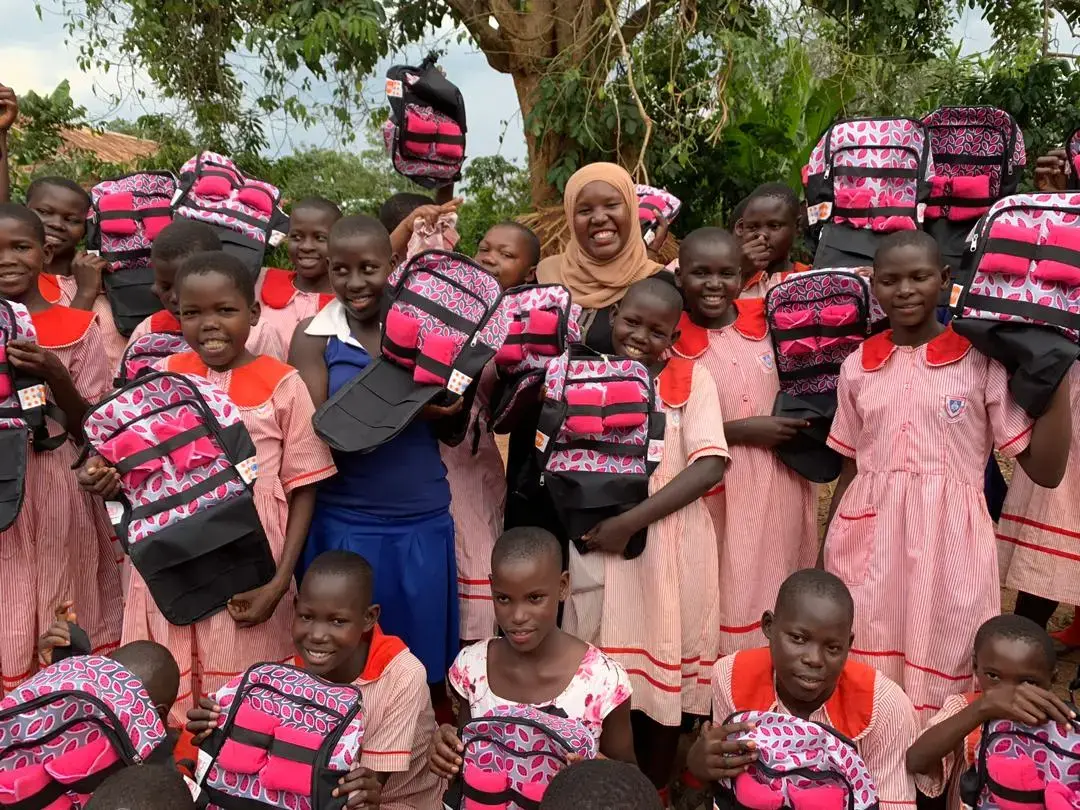Kampala, Uganda - Speaking at the launch of the 2018 State of the World Population (SWOP) and State of Uganda Population reports, the Speaker of Parliament Rt. Hon. Rebecca Kadaga expressed concern about the rapid population growth in Uganda.
“I don’t know whether colleagues have the same experience I have, when I go to the rural areas I find that children are four times the number of adults,” said Hon. Kadaga, speaking to an audience of over 700 people who attended the launch at Sheraton Hotel, Kampala on Thursday October 25th.
“I always ask myself, do we have enough schools for these children? I don’t think we do,” she added, imploring the Minister for Planning, Hon. David Bahati who was also present at the launch, to go back to the drawing board and ensure that those children receive quality education.
Her remarks squarely tied in with the theme of the State of the World Population Report: “The Power of Choice: Reproductive Rights and The Demographic Transition,” that highlights the global trend towards smaller families as a reflection of people making reproductive health choices to have the number of children they want.
In a presentation he delivered at the launch ceremony, Mr. Alain Sibenaler, the UNFPA Representative highlighted that the extent to which couples and individuals have real choices about whether to have children, how many and when to have them, has a direct impact on fertility levels.
Mr. Sibenaler referenced the Uganda Demographic and Health Survey (UDHS, 2011 and 2016) that show that Uganda`s total fertility rate stands at 5.4 children per woman, a reduction from 7 children per woman in 1991. “During the same period, contraceptive use increased, unmet need for family planning reduced and there was a steady decline in fertility rates across the region,” Mr. Sibenaler said.

Currently, Uganda’s unmet need for family planning stands at 28 percent, according to the UDHs 2016, having dropped from 36 percent in 2001. A conducive policy environment partly explains this, as was stated by Dr. Betty Kyandondo, of National Population Council and one of the discussants of the State of the Uganda Population Report on the theme: “Governance: A pre-requisite to harness the Demographic Dividend for sustainable Development.”
Dr. Kyadondo highlighted Government of Uganda’s efforts in relation to addressing Uganda’s population challenge, such as the development of the 2014 Costed Implementation Plan for Family Planning; the Roadmap to Harnessing the Demographic Divided; among other policy frameworks that have a bearing on an individual’s realization of reproductive rights.
Reproductive rights, according to the State of the World Population Report, are tied to many other rights, including the right to adequate health, education, and jobs. The Report thus, calls for countries to enhance sexual and reproductive health and rights and choices, to better manage the demographic transition. It emphasizes that the resulting change in population age structure can help countries realize a demographic dividend, bolstering economic and social development.
In her call to action, Hon. Kadaga emphasized the need to address other issues like child marriage, and the need for education, especially skilling young people through vocational training, among other factors affecting development. She specifically highlighted the need for inclusion of people with disabilities and minority groups like the Batwa - the pygmy community in South Western Uganda, to ensure that no one is left behind.
- Prossy Jonker Nakanjako



